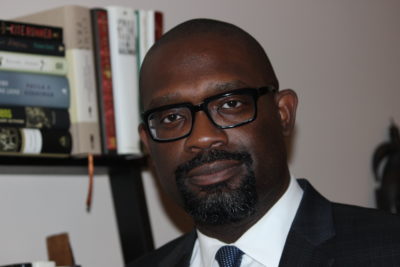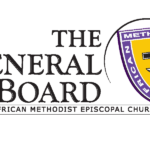Black Preaching After Trump (Part II)
Rev. William Lamar IV, Columnist
With God and his peers, both female and male, Bishop Allen founded the Free African Society in 1787, the forerunner of the African Methodist Episcopal Church. Later, in September 1830, Allen’s theological reflection again gave way to liberative action when he brought together black leaders from seven states for the first National Negro Convention, a gathering to address various issues weighing upon the black masses.
But what does this have to do with America and black preaching in this time of Advent 2016?
What Allen teaches us is the power of holy speech born of theological reflection made flesh by and within a community committed to a new world — a world endowed with freedom. Allen helps us understand the ways theological reflection brings about visioning; the ways the preaching moment, as speech act informed by theological reflection, can challenge current discourse and imagine a new world; and the ways co-creation can be institutionalized to sustain the vision and speech acts.
Yes, preaching is a textual enterprise. The words of preachers are shaped by texts that particular communities of faith have chosen to elevate theologically. But that does not mean we are to accept texts uncritically or with narrow interpretations. We cannot be in love with texts for the sake of the texts; rather, we must be in love with freedom and the liberative possibilities that lie dormant in texts until speaking — preaching — rightly animates them.
This is nothing new for African-Americans. Black writers and their readers have long woven the biblical text into their ancestral theological and philosophical understandings. The Bible has never been uncritically holy; it is holy only where and when it affirms the liberating character of God and the freedom of human existence.
So yes, just like Allen, black preachers today must continue to mount pulpits in the face of black struggle and discrimination. Remembering him and his times helps us understand that racism and the disdain for black life by many in America today is not an anomaly. Neither is the result of our most recent presidential election. They are both American.
We cannot hide from historical truth in America — not if we are serious about finding a new way forward. That history is painful, but for whom? As James Baldwin has told us, “The great force of history comes from the fact that we carry it within us, are unconsciously controlled by it in many ways, and history is literally present in all that we do.”
History lays bare our complicity in making a nation and a world that unfairly advantages some and disenfranchises others. We can no longer afford to indulge in the national rhetoric of freedom, justice and equality. Neither can we simply hope for it. Hope rests in the fighting. So we must fight for the real thing.
Not long ago, most of our leaders and scholars — whether Democrat or Republican, liberal or conservative, of African or European descent, Christian or Muslim — could easily assent to the orthodoxy that America is a good and moral nation, one ordained by God for a special purpose. Any violence in America’s history — at least, where we were not the perpetrators — was the work of isolated individuals not to be woven into the tapestry of national memory. But that is no longer the case. A new understanding, a new orthodoxy, is possible, but not until our theology and our politics deal with the complexities of American history.
Can there be a new day in the American body politic and in the American church? If preaching, especially black preaching, retains its memory, theological visioning, speech acts and co-creative possibilities, we have hope.
This Advent, as we await the coming of God, God is waiting for us to envision and create something new for this moment. Will we do God’s will and usher in God’s reign here on earth? Or will we posture in adoration bereft of hope as we watch a national and global house aflame?
(This article originally appeared in Faith and Leadership https://www.faithandleadership.com/william-h-lamar-iv-black-preaching-after-election.)
The Reverend William Lamar IV is the pastor of Metropolitan AME Church in Washington, DC. He has previously served at churches in Maryland and Florida. He is a former managing director at Leadership Education at Duke Divinity. Lamar is a graduate of Florida Agricultural and Mechanical University and Duke Divinity School.





